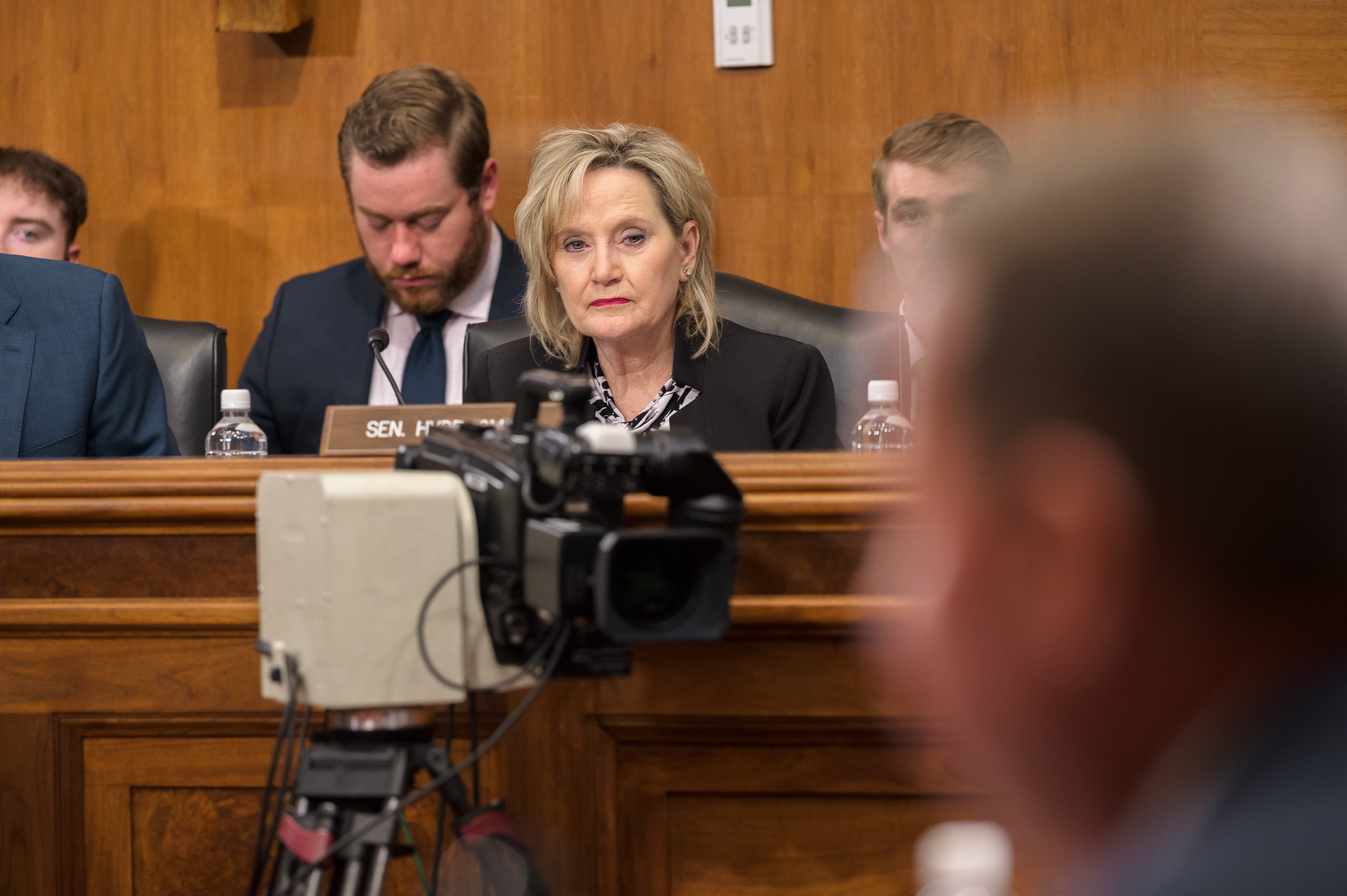HYDE-SMITH, COMMITTEE TACKLE LOOMING ELECTRIC RELIABILITY PROBLEMS
Policies Targeting Natural Gas, Coal Creates Risks of Greater Outages, Rolling Blackouts

VIDEO: Senator Hyde-Smith Questions the Risks of Inaction to Fix Nation’s Electric Grid Problems.
WASHINGTON, D.C. – U.S. Senator Cindy Hyde-Smith (R-Miss.) and her colleagues on the Senate Energy and Natural Resources Committee today examined how Biden administration energy policies increasingly put the nation’s electric grid at risk with the rapid buildup of intermittent energy sources, like wind and solar.
Hyde-Smith highlighted the strains on the electric grid as the committee conducted a hearing to examine the reliability and resiliency of electric service in the United States in light of recent reliability assessments and alerts.
“Obviously we have a lot of challenges in front of us that are very, very critical,” Hyde-Smith said following the hearing. “Everything we heard today points to a critical imbalance created by ideological climate policies and other factors that put more of the country at risk of outages and rolling blackouts, all of which will harm lives and our economy. It’s a problem that needs to be addressed now.”
Hyde-Smith agreed with assessments that the growing imbalance between energy generation and the reliable transmission of that energy to the electric transmission is partly due to the Biden administration’s aggressive actions to close power plants fueled by fossil fuels like natural gas and coal.
The committee heard that electricity from fossil fuels must remain a reliable source of electric energy until the nation develops and launches better transmission infrastructure, battery storage technology, and overcomes persistent supply chain and labor problems.
Questioned by Hyde-Smith, David J. Tudor of Missouri-based Associated Electric Cooperative, said, “I think we need at least until 2040 to maintain fossil fuel plants and make a smooth transition to a cleaner United States. That doesn’t fix the world. That just fixes the United States because China is going to continue to build coal plants.”
James B. Robb, president of the North American Electric Reliability Corporation (NERC) said in his testimony, “The challenge is not whether we have the resources and technical ability to achieve a clean energy future. Rather, the central challenge is calibrating the pace of change with the reliability needs of a transforming system that must remain reliable and resilient at all times and under all conditions. As it exists today, this balance is out of calibration and must be corrected.”
Related to electric grid reliability, Hyde-Smith recently cosponsored the Spur Permitting of Underdeveloped Resources (SPUR) Act (S.1456), a reform measure that includes provisions to increase domestic energy and mineral development and streamline permitting of energy infrastructure.
The SPUR Act is one of two Republican-sponsored bills to reform the nation’s broken permitting and environmental review processes, which are currently delaying key energy, infrastructure, and transportation projects.
###
